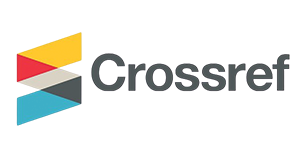The Role of Local Communities in Development Mangrove Ecotourism at Paluh Getah Beach
DOI:
https://doi.org/10.65119/jspds.v1i1.10Keywords:
ekowisata, mangrove, masyarakat lokal, konservasi, pesisirAbstract
Mangrove ecosystems have important economic and social value for local communities. Communities depend on mangroves as a source of building materials, fuel, traditional medicines and food resources. Paluh Getah Mangrove Beach in Tanjung Rejo Village, Deli Serdang, North Sumatra, offers various interesting activities for visitors to enjoy the natural beauty of the mangrove forest, and learn about the importance of environmental sustainability. However, ecotourism development is hampered by conflicts over mangrove ownership and management between local communities and forestry groups. Local communities have great urgency in maintaining mangrove ecosystems because of their dependence on the resources provided by mangrove forests. This research aims to understand the role of local communities in developing mangrove ecotourism on Paluh Getah Beach. The research method used is a case study with a qualitative approach. Data was collected through observation, interviews and literature study. The research results show that local community participation in ecotourism management is still hampered by conflicts with forestry groups. Local communities have the initiative to manage mangroves, but they do not have access to utilize these resources. Even though there are several creative economic efforts from local communities, they have not experienced significant economic benefits from the existence of mangrove ecotourism. Efforts to resolve conflicts over ownership and management of mangroves are the main key to opening up space for full participation of local communities in ecotourism management. Apart from that, economic empowerment of local communities through the development of mangrove-based tourism businesses needs to be carried out comprehensively.
References
Alanazi, T. M. B. (2013). The interrelationships among business ethics, organizational culture and attitudes towards strategic growth alternatives of Muslims' SMEs in the UK (Doctoral dissertation, University of Birmingham).
Arpannudin, I., Suryadi, K., Malihah, E., & Anggraeni, L. (2021). The sociocultural basis of Indonesian philanthropy: Keeping citizens willing to share amid a pandemic. Jurnal Civics: Media Kajian Kewarganegaraan, 18(2), 345-350.
CHOPRA, M. R. (2022). A Study of Religions. Anuradha Prakashan.
Haldorai, K., Kim, W. G., Chang, H. S., & Li, J. J. (2020). Workplace spirituality as a mediator between ethical climate and workplace deviant behavior. International Journal of Hospitality Management, 86, 102372.
Hayati, F., Nursobah, A., & Rosenda, D. (2019, April). Establishing Student's Social Piety through Religious Activities. In 3rd Asian Education Symposium (AES 2018) (pp. 346-351). Atlantis Press.
Helmi, M., & Sari, N. P. (2021). Implementation of the Synergy of Transformational-Servant Leadership Character in Islamic Boarding School. Journal of Leadership in Organizations, 3(2), 173-192.
Irmi, I. Y., Maulana, E. R., Saepulloh, S. P., Prasetyo, A., Asbari, M., Novitasari, D., & Purwanto, A. (2022). Adaptation of Student Socio-Religious Rituals and Practices during a Pandemic. Journal of Information Systems and Management (JISMA), 1(5), 53-60.
Joyce, P. (2015). Strategic management in the public sector. Routledge.
Mériade, L., & Qiang, L. Y. (2015). Public values on the public/private boundary: The case of civil servant recruitment examinations in China. International Review of Administrative Sciences, 81(2), 282-302.
Muhibbin, Z., Sutikno, S., Soedarso, S., Ahmad, I. S., & Sari, N. I. (2022). Social Piety Index for Character Development in Indonesia: A Case Study Of Mojokerto. JURNAL SOSIAL HUMANIORA (JSH), 15(2), 129-145.
Osborne, S. (2020). Public service logic: Creating value for public service users, citizens, and society through public service delivery. Routledge.
Sedikides, C., & Gebauer, J. E. (2013). Religion and the self. Religion, personality, and social behavior, 46-70.
Suherman, S. (2022). Character education in the family as a strengthening of moderation during the pandemic era. Journal of Social Studies (JSS), 18(2), 237-248.
Sumardin, A., Sultan, L., Said, N., & Ridwan, M. S. (2021). Social Relationships in Congregational Prayers Toward Social Life in Makassar City During Covid-19 Pandemic. Jurnal Diskursus Islam, 9(2), 355.
Suyadi, S., Sumaryati, S., Hastuti, D., Yusmaliana, D., & MZ, R. D. R. (2019). Constitutional Piety: The Integration of Anti-Corruption Education into Islamic Religious Learning Based on Neuroscience. J-PAI: Jurnal Pendidikan Agama Islam, 6(1).
Downloads
Published
Issue
Section
License
Copyright (c) 2024 Journal of Social, Policy and Development Studies

This work is licensed under a Creative Commons Attribution-ShareAlike 4.0 International License.









